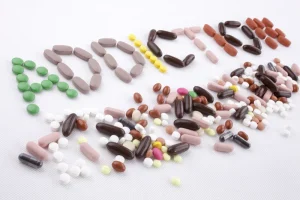
Family dynamics, stress, and cultural attitudes toward alcohol all contribute to the development of Alcohol Use Disorder. A 2021 study found that individuals with certain genetic variants related to alcohol metabolism were more likely to develop AUD when exposed to childhood trauma or stressful life events. Answering the question, “Is addiction hereditary,” a groundbreaking 2023 study from Indiana University School of Medicine revealed that alternative gene splicing plays a key role in problematic alcohol use (PAU). This process allows a single gene to produce multiple proteins, adding another layer of complexity to how genetics influence AUD risk. As yet, no GABRA2 functional variant has been detected to explain the yin yang haplotype (or tag SNP) associations with alcoholism-related phenotypes. HapMap data and other studies 52 reveal moderate long distance linkage disequilibrium across GABRA2 and the closely adjacent gene GABRG1 raising the possibility that the functional locus is in GABRG1.

Follow us on social media
Heritability (h2) estimates across SUDs vary, but broadly suggest that genetic influences account for approximately 50% of the risk. Other intermediate phenotypes predict diatheses that include alcoholism as well as other psychiatric diseases. Relevant phenotypes in this regard include electrophysiological, psychological, neuroendocrinological and, more recently, neuroimaging phenotypes. For example, amygdala activation after exposure to stressful stimuli predicts anxiety and captures inter-individual differences in emotional response and stress resiliency 33. On the other hand, activation of the pre-frontal cortex during working memory performance is used to evaluate pre-frontal cognitive function which is impaired in several psychiatric diseases. The presence of these genes alcoholism treatment doesn’t guarantee a future alcohol use disorder – or any type of disorder or condition.
- This includes establishing privacy and data protection measures, implementing anti-discrimination laws, and providing appropriate genetic counseling and support services.
- The impact of genes on behavior like alcohol use or even sexual orientation has long been the subject of scientific debate.
- He added that the research could help in identifying youngsters at risk of becoming alcoholics and could lead to early prevention efforts.
Paying for Treatment

Twin studies can to some extent disentangle the roles of genetic heterogeneity and polygenicity–epistasis. 2,14 under the epistatic model, combinations of genetic variants, each represented as a puzzle piece, determine phenotypes. Research suggests that individuals with certain genetic profiles may respond better to specific medications, highlighting the potential for personalized treatment approaches based on genetic makeup. Alcohol abuse often runs in families due to both inherited genes and learned behavior. Sometimes, AUD seems to skip a generation because different combinations of risk-related genes are passed down, making the outcome less predictable. Understanding the relationship between our genes and alcohol dependency isn’t just academic curiosity.

The Link Between Genetics and Alcoholism
The current hope is that with very large sample sizes, GWAS will provide novel information about genetic underpinnings of alcoholism, including gene pathways that are altered in disease. The strongest and most consistent findings for GWAS for AUD are for alcohol metabolizing genes, as in a recent study in an East Asian (Korean) sample of alcoholics in which ALDH2 and ADH1B showed up as GWAS signals with genome-wide significance 68. Subsequent analysis showed that AUTS2 was implicated in alcohol consumption in mice and alcohol sensitivity in drosophila 69. Environmental factors also account for the risk of alcohol and drug abuse.2 Scientists are learning more about how epigenetics affect our risk of developing AUD. The goals of this renewal concept are to continue to integrate and share COGA data and to continue to add data across the lifecycle, specifically in the adolescent and young adult (Prospective Study) and older adult (Lifespan Study) cohorts.
- Awareness of these factors can empower people to take preventative measures, such as seeking support, building healthy coping mechanisms, and practicing moderation around drinking.
- And these distinctions will be important for identifying the genetics of addiction, the researchers said.
- The interplay between genetic predisposition and the individual is commonly mistaken for the vague term “addictive personality”.
Tips to Stop the Family Cycle
Due to the significance of someone’s environment and how genetics interact with the environment, you might be born genetically predisposed to alcohol use disorder, though no one is ever born with it. First-degree relatives such as parents, children, and siblings of individuals with alcohol use disorder are two to seven times more likely than people with nonalcoholic relatives to develop problems with alcohol at some time in their lives (4). However, just because someone’s parents do not have AUD does not mean they won’t develop it. The opposite is also true; just because AUD runs in your family does not mean you will have the disorder. It’s is alcohol addiction hereditary an all-too-common trait of alcohol use disorder (AUD) to run in families and persist across generations.
Recognizing alcoholism as a disease promotes early intervention, access to appropriate healthcare services, and ongoing support for people struggling with AUD. While alcohol addiction isn’t entirely preventable, specific measures can reduce its risk. But substance abuse isn’t determined only by the genes you inherit from your parents. Whether you are genetically predisposed to addiction or not, if you or a loved one are struggling with substance abuse, help is available. It’s important to note that genetic testing for addiction is still in its early stages, and the interpretation of results is complex. Genetic testing should be accompanied by genetic counseling to ensure that individuals understand the limitations and implications of the results.
- Hereditary conditions are always inherited but may not account for non-familial genetic influences, meaning, you inherit a genetic factor that is not from your immediate family.
- This means having a genetic predisposition to alcohol addiction can be exacerbated by your environment.
- One of the most common questions people have surrounding alcoholism is whether or not it’s genetic, and if so, what happens when alcoholism runs in the family.
- This could include implementing family therapy programs, providing access to mental health services, and promoting healthy coping strategies.
Specific Guides
Some genes increase a person’s risk for AUD, while others decrease that risk directly or indirectly. For instance, some people of Asian descent carry a gene variant altering their rate of alcohol metabolism, causing symptoms like flushing, nausea, and rapid heartbeat when they drink even a little alcohol. In this post, I provide an overview of key research on the genetic inheritance of substance use disorders such as alcohol use disorder, opioid use disorder, and cannabis/marijuana use disorder.
